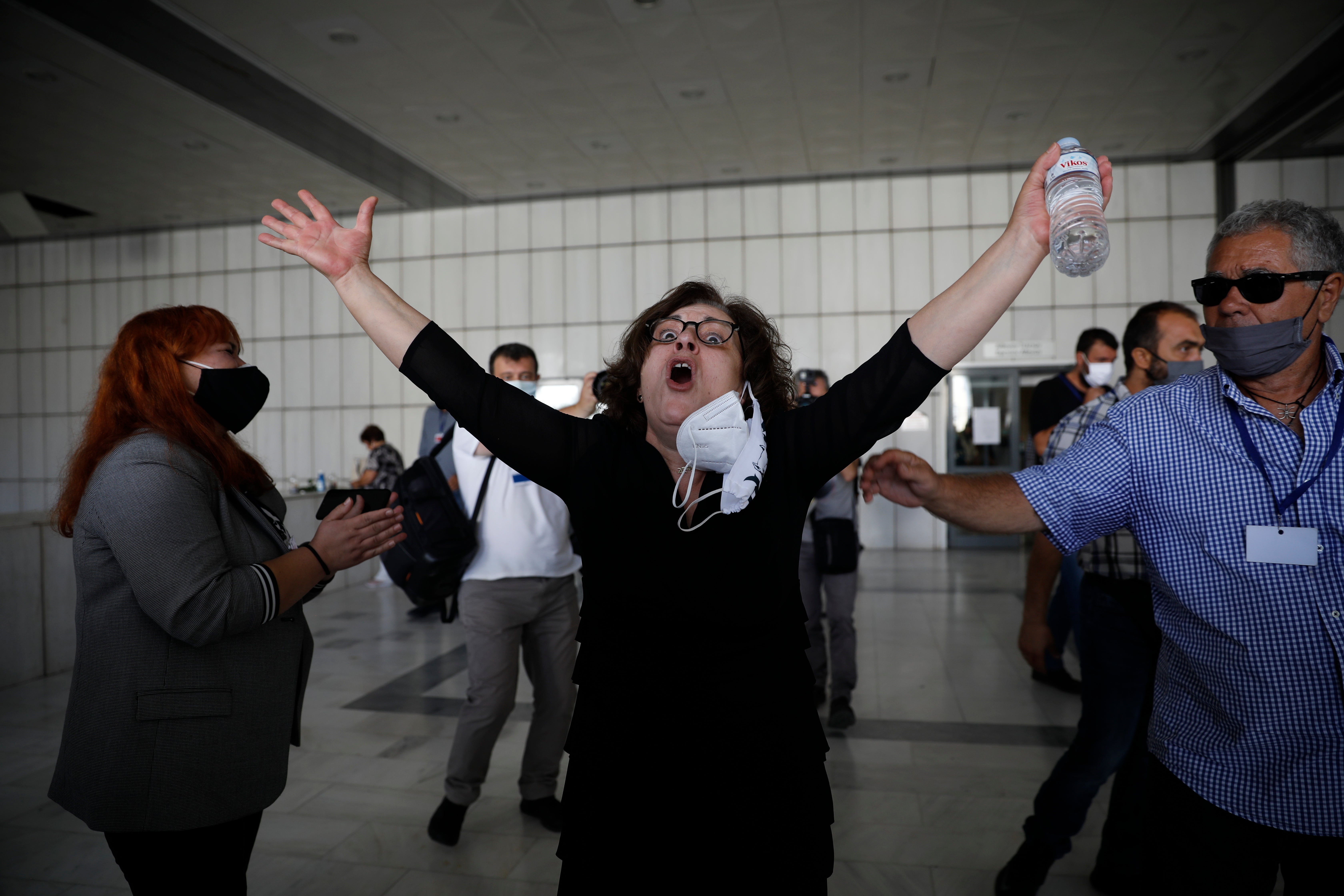Sentencing procedure continues for Greece's Golden Dawn
Defense lawyers for the 18 former lawmakers of Greece’s far-right Golden Dawn party are continuing their arguments for more lenient sentences, after judges deemed the party a criminal organization in a landmark verdict two days ago

Your support helps us to tell the story
From reproductive rights to climate change to Big Tech, The Independent is on the ground when the story is developing. Whether it's investigating the financials of Elon Musk's pro-Trump PAC or producing our latest documentary, 'The A Word', which shines a light on the American women fighting for reproductive rights, we know how important it is to parse out the facts from the messaging.
At such a critical moment in US history, we need reporters on the ground. Your donation allows us to keep sending journalists to speak to both sides of the story.
The Independent is trusted by Americans across the entire political spectrum. And unlike many other quality news outlets, we choose not to lock Americans out of our reporting and analysis with paywalls. We believe quality journalism should be available to everyone, paid for by those who can afford it.
Your support makes all the difference.Defense lawyers for the 18 former lawmakers of Greece’s far-right Golden Dawn party are to continue their arguments Friday for more lenient sentences, after judges deemed the party a criminal organization in a landmark verdict two days ago.
The lengthy sentencing procedure is the final chapter in a five-year politically charged trial that encompassed four cases and involved 68 defendants, more than 200 witnesses and over 60 lawyers.
The defense lawyers representing the former lawmakers including party leader Nikos Michaloliakos, are presenting mitigating circumstances to the court for more lenient sentences to be imposed on their clients.
Seven of the former lawmakers, including Michaloliakos and European Parliament member Ioannis Lagos, have been found guilty of leading a criminal organization and face five to 15 years in prison. The other 11 were found guilty of participating in a criminal organization, which carries a potential sentence of five to 10 years.
Founded as a neo-Nazi group in the 1980s, Golden Dawn remained a fringe group until Greece’s brutal, near-decade-long financial crisis that began in 2009, during which it became the country’s third-largest party. Considered a model for many extreme-right groups in Europe and beyond, it won parliamentary seats in four elections from 2012 until 2019, when its popularity plummeted.
The trial against party lawmakers, members and supporters was sparked by the 2013 fatal stabbing of left-wing Greek rapper Pavlos Fyssas, and encompassed another three cases: physical attacks against Egyptian fishermen in 2012 and on left-wing activists in 2013, and whether Golden Dawn was operating as a criminal organization.
Giorgos Roupakias, accused of being a party supporter who delivered the fatal stab wounds to Fyssas, was found guilty of murder, possession and use of a weapon, and faces a potential life sentence. Fifteen others — none of them former lawmakers — were convicted as accomplices.
During Thursday’s sentencing hearing, prosecutor Adamantia Economou argued that mitigating circumstances could be recognized for those only found guilty of membership of a criminal organization but not for other crimes.
The defendants are not required to be in court for the verdict or sentencing. None of the former lawmakers, who had all served the maximum 18 months in pre-trial detention at the start of the trial, appeared in court for the verdict on Wednesday or during Thursday’s sentencing procedure.
Once sentences are imposed and if the court decides they will not be suspended, arrest orders will be issued. Those convicted can also turn themselves in at a police station.
One potential complication is Lagos, the European Parliament member, who now lives in Brussels and enjoys immunity.
In an online video post from the European Parliament Thursday, Lagos vowed to fight a legal battle to demonstrate that the trial had been unfair, describing it as politically motivated. But he said he was willing to give himself up voluntarily if requested.